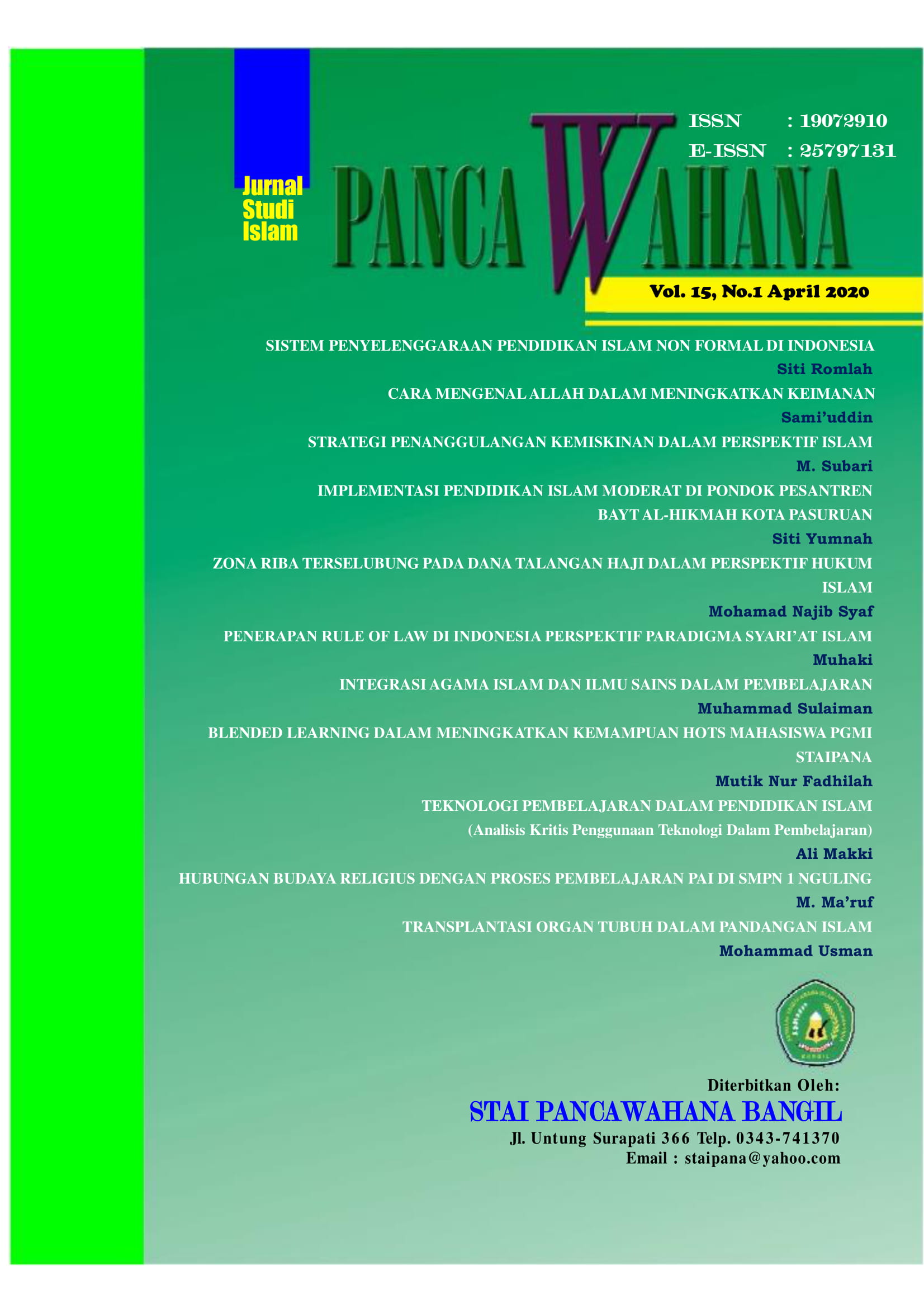SISTEM PENYELENGGARAAN PENDIDIKAN ISLAM NON FORMAL DI INDONESIA
Non Formal Islamic Education
Abstract
Talking about Islamic education or education in general, from the aspect of the path there are several educational institution terms, namely informal, formal and non-formal education. These three education pathways are complementary in their implementation to the achievement of general goals set in national education goals. Therefore, the level of government attention in terms of policy must still be able to accommodate the interests of the three education channels. This is consistent with what has been mandated in the juridical foundation of the national education system. In connection with this policy, the author will outline a general description of the definition and characteristics of non-formal Islamic education in Indonesia, and the development of the system of providing non-formal Islamic education going forward. The aim is to increase vertical mobility for students and the community that has become the focus of non-formal education planners for nation building. By using the liberty research approach, with various sources of literature, about non-formal Islamic education, which has provided an illustration that non-formal Islamic education is equivalent to formal education. The aim of non-formal Islamic education is to provide educational services to all members of the community, both men and women so that they have the ability to develop their potential by emphasizing mastery of vocational knowledge and skills, and developing professional attitudes and personalities, so that non-formal Islamic education can also function as a substitute, supplementary or complementary formal education in order to support lifelong education.
Published
2020-06-22
Section
Articles
Hak Cipta
Jurnal Studi Islam Panca Wahana ini bisa digunakan bagi akademis dan juga khalayak luas.




